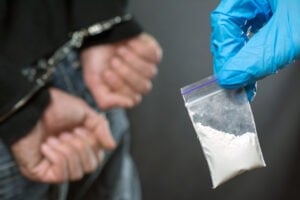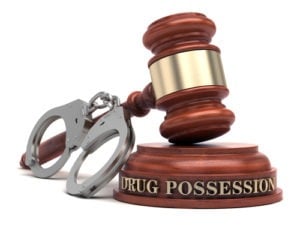
What happens if you’re charged with a drug offense in Texas depends on many factors unique to your situation. Chief among those factors is the type and the quantity of the alleged drug in your possession. Your criminal history also plays a role.
Drug offenses for small quantities of marijuana can be charged as misdemeanors, while possession of even less than a gram of more illicit drugs (like cocaine) can be charged as felonies. Regardless of your charges, you could benefit from hiring a drug charges lawyer in Houston. They can fight for an acquittal or case dismissal.
Your Criminal Charges Depend on the Drug in Question
The Texas Penal Code has a multi-tiered system of penalties for drug convictions. This system categorizes drugs into different “penalty groups,” which are largely based on a substance’s addiction rate, side effects, and perceived threat to society.
Consider the following:
Penalties Group 1: Heroin and Cocaine
Penalty Group 1 is for drugs presumed to be very dangerous and highly addictive, such as heroin, crystal meth, and cocaine.
| Quantity | Severity of Charge | Potential Incarceration Time | Maximum Potential Fine |
| Below one gram | State jail felony | Six months to two years | $10,000 |
| One to four grams | Third-degree felony | Two to 10 years | $10,000 |
| Four to 200 grams | Second-degree felony | Two to 20 years | $10,000 |
| 200 to 400 grams | First-degree felony | Five to 99 years | $10,000 |
| Over 400 grams | Enhanced felony 1 | 10 to 99 years | $300,000 |
Penalty Group 2: for “Party Drugs” and Some Hallucinogens
Penalty Group 2 includes stimulants, “party drugs” (such as ecstasy), and some hallucinogens, such as mushrooms.
| Quantity | Severity of Charge | Potential Incarceration Time | Maximum Potential Fine |
| Below one gram | State jail felony | Six months to two years | $10,000 |
| One to four grams | Third-degree felony | Two to 10 years | $10,000 |
| Four to 400 grams | Second-degree felony | Two to 20 years | $10,000 |
| Over 400 grams | First-degree felony | Five to 99 years | $50,000 |
Penalty Group 3: Prescription Medications
Penalty Group 3 includes both stimulants, depressants, and prescription medications, such as Valium and Ritalin.
| Quantity | Severity of Charge | Potential Incarceration Time | Maximum Potential Fine |
| Below 28 grams | Class A misdemeanor | A maximum of one year | $4,000 |
| 28 to 300 grams | Third-degree felony | Two to 10 years | $10,000 |
| 200 to 400 grams | Second-degree felony | Two to 20 years | $10,000 |
| Over 400 grams | First-degree felony | Five to 99 years | $50,000 |
Penalty Group 4: Morphine and Opiates
Penalty Group 4 is made up of many controlled substances, prescription medications, and other substances that are potentially addictive.
| Quantity | Severity of Charge | Potential Incarceration Time | Maximum Potential Fine |
| Below 28 grams | Class B misdemeanor | Up to six months | $2,000 |
| 28 to 200 grams | Third-degree felony | Two to 10 years | $10,000 |
| 200 to 400 grams | Second-degree felony | Two to 20 years | $10,000 |
| Over 400 grams | First-degree felony | Five to 99 years | $50,000 |
Marijuana-Related Offenses
Although marijuana has been legalized in many states that share borders with Texas, it remains strictly prohibited. With that said, it has a different charging schedule than the controlled substances in the above penalty groups. Marijuana-related offenses can be charged as misdemeanors or felonies, with the difference largely riding on the amount of illegal drugs in one’s possession.
Texas’ marijuana penalties are as follows:
| Quantity | Severity of Charge | Potential Incarceration Time | Maximum Potential Fine |
| Up to two ounces | Misdemeanor | Up to six months | $2,000 |
| Between two and four ounces | Misdemeanor | Up to one year | $4,000 |
| Between four ounces and five pounds | Felony | Between 180 days and two years | $10,000 |
| Between five and 50 pounds | Felony | Between two and 10 years | $10,000 |
| Between 50 and 2,000 pounds | Felony | Between two and 20 years | $10,000 |
| Over 2,000 pounds | Felony | Between five and 99 years | $50,000 |
For a legal consultation, call (713) 225-1900
You Have the Right to Defend Yourself Against Criminal Charges
Being charged with a drug offense is very serious, as Texas prosecutors have a reputation for aggressively pursuing convictions. However, you have options if you’ve been charged with a drug offense. Being charged and being convicted are two very different things, and a Houston drug possession lawyer can build a case that secures the best possible outcome.
In your defense, an attorney could assert that:
The Prosecution doesn’t Have Valid Evidence
To secure a conviction, the prosecutor must show that you committed a crime beyond a reasonable doubt. They need evidence to achieve this goal, such as eyewitness testimony, the arrest report, and body cam footage.
Your criminal defense lawyer could move to have improperly collected evidence barred from trial, weakening the prosecution’s case. For instance, if you were found to have illegal substances in your vehicle, but the police didn’t have probable cause to pull you over, your lawyer could have anything found disregarded.
You don’t Deserve the Charges You Face
Being convicted of a drug offense in Texas may not automatically lead to prison time. Your drug charges lawyer could argue for reduced charges based on weaknesses they can identify in the prosecution’s case. There are also cases where a drug lawyer could persuade the prosecutor and judge to agree to court-ordered rehabilitation, giving you the opportunity to better yourself.
Charged With a Drug Offense in Texas? Call Blass Law
One of the worst things about drug offenses is that the penalties don’t end with incarceration and fines. Drug convictions can do severe damage to your personal reputation and cast a long shadow over your future. If you’re convicted, you may be ineligible for financial aid, and you may also lose any professional licenses you held at the time of the conviction. It could also adversely affect custody cases involving your children.
Blass Law can help. We’ve been fighting for the legal rights of accused Texans since 2009. Our founding attorney, Jay Blass Cohen, is certified in forensic science and drug analysis. We will work as hard as we can to help you avoid the worst potential outcomes in drug offense cases. If you’re facing a drug charge in Texas, contact our firm for a confidential consultation and find out how we can help.
Call or text (713) 225-1900 or complete a Case Evaluation form


